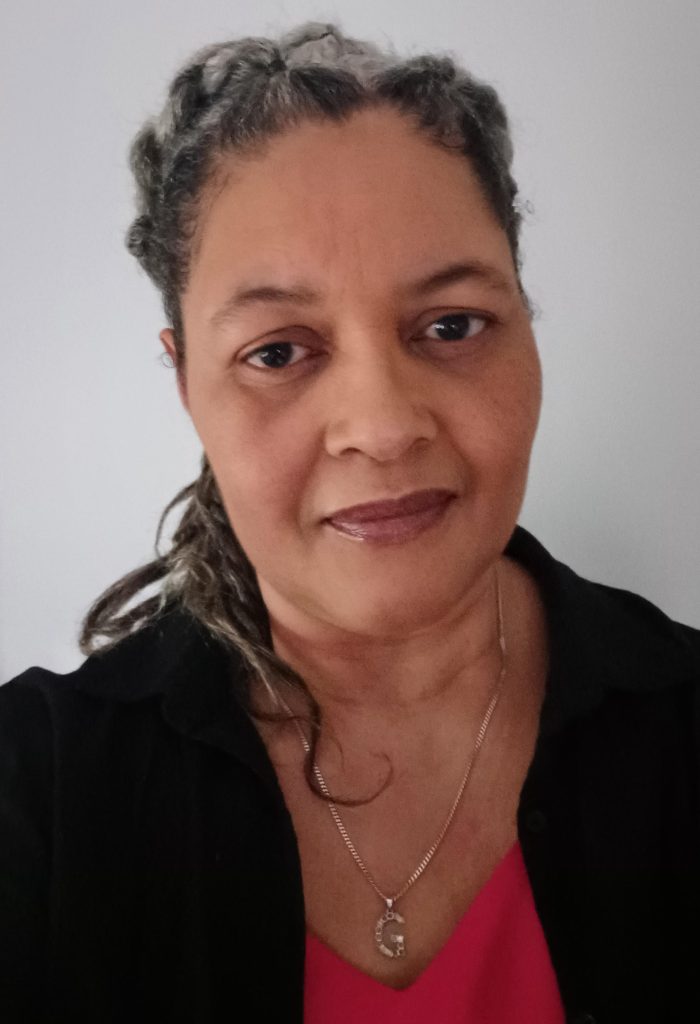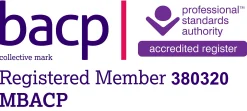Welcome to
Gail Adeniyi Counselling
partnered with PureGym
"Passionate about helping others to help themselves"
I am an integrative counsellor providing short and long term counselling to adults
About Me
I have always been passionate about helping others and usually the “go to” person amongst family and friends when they needed a listening ear!
I was actually awarded a "wet shoulder award" in 2012 by my colleagues as they said I was always available for people to cry on!
I realised how valuable and helpful seeing a counsellor was for me when I was going through a difficult time in my life. It helped me to identify the causes and patterns that were contributing to my difficulties and also helped me to better understand and accept myself.
I decided to become a counsellor because I wanted to provide a service so that you can experience the positive difference counselling can make to your life. Your starting point of taking that first leap of courage, acknowledging that something needs to change and seeking help is admirable!
I absolutely love being a counsellor! When we can identify the causes and patterns that may be contributing to our difficulties, we can better understand ourselves, accept ourselves, forgive ourselves too (if need be!), make sense of it all and empower ourselves to be the best version of ourselves that we can be.
My Experience
I have worked for BUPA's Employee Assistance helpline offering emotional and practical support to callers.
I also have experience of offering counselling services in GP surgeries and I have also worked with my local Council and other local agencies in offering counselling to women who have gone through or going through domestic abuse.
I am a member of the British Association of Counselling & Psychotherapy (“BACP”) & National Counselling & Psychotherapy Society ("NCPS").
I adhere to their code of ethics and values and I have an ongoing commitment to continuing professional development so that my skills are always up to date.
I also have Clinical Supervision monthly. Clinical Supervision is a formal and collaborative process that keeps me accountable and ensures that I am working ethically with you.
I now run my own private practice, working mainly online, which gives access to a greater number of individuals and removes geographical barriers.
Therapists are known as "wounded healers" and that's because we have all experienced our own heartbreak, major life setbacks, disappointment and trauma but we survived and thrived and now want to help others to do the same.
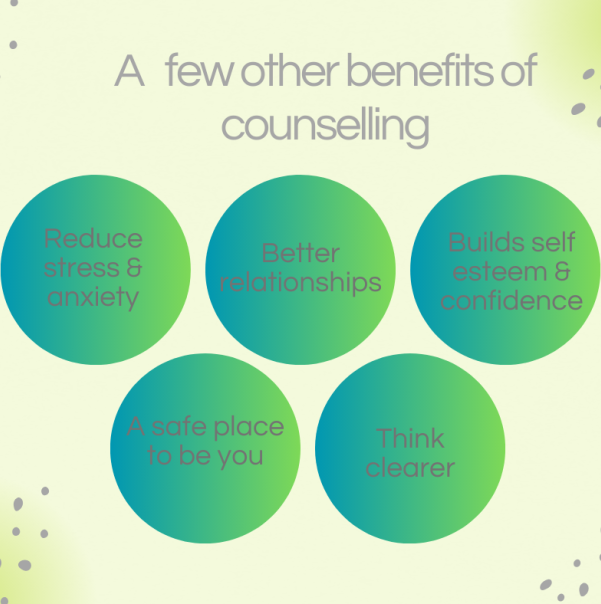
How seeing a
counsellor can help
Many of us have events from our past which have left us wounded – rejection, death of a loved one, family member or parent, childhood neglect, bullying, relationship breakdown or abuse. When these events occur, our view of the world shifts and we can feel that it is no longer safe and so we adjust our coping style in order to avoid these traumatic events from happening or affecting us again.
What we may not realise is that the coping mechanisms we put in place back then may now be hindering us as adults, but we may not even recognize that that is the case or how to change them. Counselling can help you to explore & understand these in a safe, caring and confidential space.
Are you feeling like you've reached a crossroads in life?
Do you feel lost or stuck and unsure which direction to take?
I can help you to look at what's holding you back, equip you with new, healthier ways of coping and help you to achieve the goals you want for the future you deserve.
I believe that, while I bring expertise in psychology and human behaviour, you are the expert on yourself. I tailor each session with your knowledge and autonomy in mind, supporting you to make the changes and decisions that feel right for you.
Issues I deal with the most:
I have experience of working with a wide range of clients aged 18+ with an extensive range of issues, however the below issues are those I deal with the most:
Abuse
Anger Management
Anxiety/Overthinking
Bereavement, Loss & Grief
Career coaching
Childhood - Awareness and Healing
Communication
Cultural issues
Depression
Domestic Abuse
Family Issues
Health related issues
Loneliness
Life coaching
Personal development
Post-Traumatic stress
Relationships
Self Esteem/Confidence
Stress / Burnout
Trauma
Workplace issues
Or maybe you can't pinpoint what is troubling you -
you just know you want things to be different.
Journeying Together
Counselling is a professional relationship which focuses entirely on you. It’s a journey of self-discovery and empowerment.
As your therapist, my role is not to advise you or fix you (you are not broken), but rather to listen with empathy and compassion and provide fresh perspectives on the difficulties you are facing. Together, we will work on strategies that will enable you to effectively manage your emotions, gain insight, implement changes and achieve your goals.
As an integrative counsellor, I use a number of different approaches from various schools of counselling and human psychology according to your individual needs. My aim is to empower you to live a more enjoyable life and uncover your authentic self.
I work with your past and your present - even though we can't change the past, I believe we can change your present by understanding your past! Understanding how our childhood shaped us isn't about blame - it's about awareness. It's how we learn to stop repeating pain and start creating peace.
If you feel you aren't functioning so well, then this suggests that exploring your past may be helpful to uncover the root causes. If you're feeling depressed, anxious, having problems in your relationships, want to feel more confident but just don't know where to begin or you're just feeling irritable but can't pinpoint why, exploring your early years could be beneficial for you in understanding your adult self.
"Until we make the unconscious conscious, it will direct your life and you will call it fate" (Carl Jung)
Life can be so challenging sometimes and whether you are facing specific difficult situations in your life and feel like no-one cares or understands, I would love to work with you to help you to achieve the life you deserve.
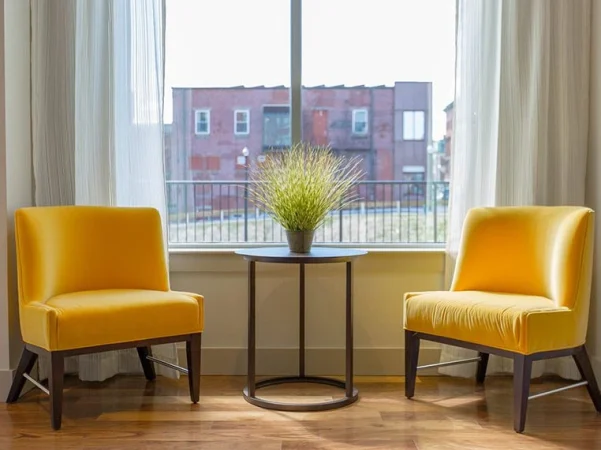
My Location
I offer counselling online at the moment and cover Leeds, Greater Manchester and other UK regions.
I do offer a face to face counselling sessions in Leeds City Centre but these spaces are currently fully booked.
Appointments
I offer a free 15 minute initial telephone consultation. This an opportunity for us to connect and for you to briefly inform me of what’s brought you to therapy. We can discuss your hopes and expectations and discuss how I can provide the support you are seeking.
Frequency of sessions: Sessions will usually be on a weekly basis and where possible, at the same time and same day of the week. Experience shows that a consistency of time and place positively aids the therapeutic process. However, we can discuss frequency if you feel unable to commit to weekly sessions.
Length of sessions: Our sessions will be 60 minutes and together we will review the process periodically as this will help to assess whether your needs are being met and decide on a new direction or to establish new goals.
Available hours
Daytime, evening and weekend availability.
Online and face to face.

As of my recent partnership with PureGym, active members will get a 15% discount.
5 Minute Self Care Tips
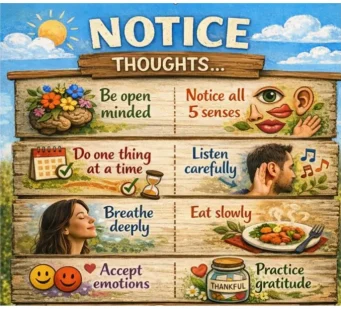
Practice Mindful Breaks
Take 5–10 minutes each day to disconnect from screens and distractions.
Sit quietly, breathe deeply, and focus on the present moment—whether it’s the rhythm of your breath, sounds around you, or how your body feels.
This simple practice can reduce stress, improve focus, and help you feel more grounded throughout the day.
Reviews
FAQs
Research shows that the therapeutic relationship between you and your therapist is likely to have a big impact on your growth so it’s important
to choose a therapist you feel comfortable with. You can search the online directories and choose, say, 3 therapists you think can help you. Have an initial consultation with all of them so you can ask questions and see who you feel the most comfortable with before booking in your first session.
My aim when working with you will be to :
- Make you feel safe and comfortable opening up to me and feel supported to say anything to me without fear of judgement;
- Allow you to be yourself and be open and honest;
- To know you are being heard and that I am interested in what you are saying. I'm not only taking in your words but also understanding them;
- I want the best for you and will always work in collaboration with you;
- I will regularly check in with you and encourage you to speak up if you feel therapy with me is not working;
- Whilst I may be an expert in certain areas of human psychology, that doesn’t mean I know everything and I will openly admit if I don't know something and do my best to learn more. I am a committed therapist and I am continuously increasing my knowledge;
- I may not agree with everything you say or do but I will validate your thoughts, emotions, actions and experiences and acknowledge that what you tell me is the truth of your experience;
- I will never use your sessions to address my own concerns. I may share an experience but only if I feel it will help you;
- I will work to forge a bond with you that is based on mutual trust & respect;
- I will not advise you because I am trying to empower you to what you think you should do based on your own experiences and personal beliefs so that you can make better choices for yourself in future.
- I will, respectfully, challenge you. Some styles of therapy involve questioning irrational thinking patterns and this will be done respectfully without making you feel bad for ways of thinking that might not be serving you.
- I will offer a range of solutions - some may include suggestions of books to read or work to do outside of your sessions.
- You will notice a change in yourself as you begin to have therapy. These may only be small changes at first as therapy differs from one person to the next.
There’s no “one size fits all” but I am here to offer you a toolbox instead of a single tool.
With my help, you can give yourself time and space to get to know who you are and what you need.
The stigma around having therapy is reducing and you’d be surprised how many friends and colleagues have already taken this step. It’s not a sign of weakness to ask for help, it shows courage and strength that you are ready to make positive changes to your life.
As a therapist, I have had to undergo my own therapy, so I know exactly how vulnerable and uncomfortable it can initially feel.
Here are some ways having therapy can help.
- Promote healthier behaviours;
- Provide more satisfying relationships in your life;
- Promote psychological well-being, through self-awareness, self-acceptance and self-compassion;
- Learn better mechanisms for coping with difficulty;
- Address overwhelming emotions or destructive behaviours that are influencing your ability to engage in daily life;
- Address issues such as unhelpful repeating patterns, depression, anxiety, addiction and grief.
You don't have to wait until you are having a crisis to attend therapy.
Remember that talking to a mental health professional, doesn't mean anything is wrong with you - it's what's happened to you,
I am a member of the British Association of Psychotherapy & Counselling ("BACP") and National Counselling & Psychotherapy Society ("NCPS"). Being a member of these professional bodies is evidence that I have passed an approved training course and I am required to keep myself up-to-date through continuous professional development. I am also fully insured, DBS checked and registered with the Information Commissioner's Office ("ICO").
Our sessions will last 60 minutes.. During your first session, we will spend about 10 mins or so completing some required paperwork. Then, I'll tell you a little about me, how I work and what you can expect from me. I'll ask you about what's brought you to therapy now and any medication you may be taking. I'll ask some questions about yourself, your family history, including your childhood as I like to spend time getting to know you. We'll discuss any challenges you may be facing and what you hope to achieve by coming to counselling.
This is a crucial step in your mental health journey and if, after your first session with me, you don't feel I am the right therapist for you - that's absolutely ok.
Get in touch
Feel free to contact me if you have any questions about how counselling works, or to arrange an initial assessment appointment. This enables us to discuss the reasons you are thinking of coming to counselling, whether it could be helpful for you and whether I am the right therapist to help.
All enquires are usually answered within 24 hours, and all contact is strictly confidential and uses secure phone and email services.
I'm looking forward to hearing from you.
Gail
"What is meant for you, won't pass you by"
J A Martin
“Perhaps the butterfly is proof that you can go through a great deal of darkness yet still become something beautiful.”
Beau Taplin
